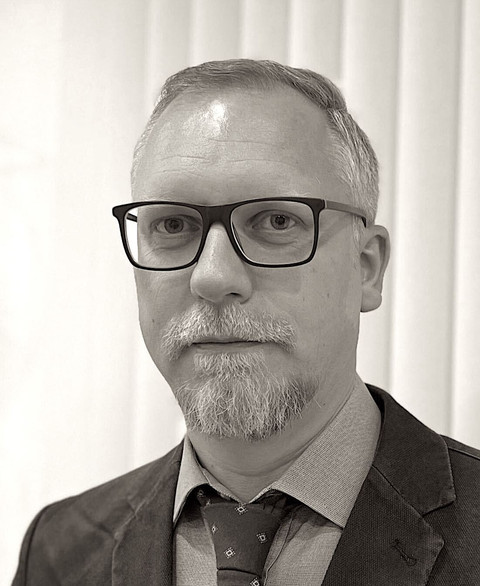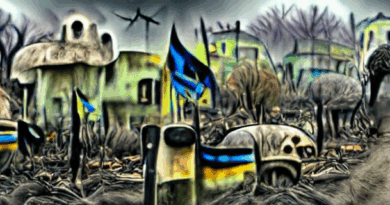[Column] Iceland pest-catcher in Ukraine shows Russia isolation
Speaking to Russian media last Sunday (10 September), Icelander Konráð Magnússon praised Russian forces that, in his words, provided protection to people who participated in Russian “elections” in the occupied parts of Ukraine’s Kherson region.
Delighted by the bravery of the “voters”, Magnússon added that in his native region in Iceland it was dangerous to go to elections, because there was no police or proper security.
In Iceland? Dangerous? To go to elections? Let me google this for you: for the 15th year in a row, Iceland is the safest country on the planet, according to the Global Peace Index.
But perhaps we should be speaking of a different planet.
Consider this: in the Russian world, the Kremlin media passionately quoted Magnússon’s compliments on Russian “elections” and referred to him as “an international observer”, “an electoral expert”, and “a public figure” who could clearly see that the “elections” in occupied Ukraine were supposedly free, democratic, and fair.
In our world, however, the EU considers Russia-organised “regional and local elections” in occupied Ukrainian territories illegal and illegitimate.
And on our planet, Magnússon is known not as an “electoral expert”, but as an operations director of Reykjavík Pest Control, an exterminator of rats and seagulls. Is it because of pests that it is dangerous to go to elections in Iceland?
Russia occupied vast parts of Ukraine’s Kherson region, including its capital, Kherson city, in the very beginning of its full-blown invasion of Ukraine in late February 2022.
In September 2022, Russia staged sham referendums in the occupied parts of the Kherson, Zaporizhzhia, Donetsk, and Luhansk regions of Ukraine and formally annexed them on 30 September 2022, but in November of the same year, the Ukrainian Army liberated Kherson city from Russian occupation forces.
As documented by the Berlin-based European Platform for Democratic Elections, in September 2022, Russia brought a few dozens of foreigners who were ready to laud any Kremlin-organised “plebiscite” in occupied Ukrainian territories as “international observers”.
Following its long tradition of organising bogus monitoring missions, the Kremlin, again, tried to legitimise the annexation of Ukraine’s territories with the help of foreigners.
In its psychological games, as much as the Kremlin publicly hated the West, it also wanted its domestic audiences to think “many” in the West approved of Russia’s actions.
And, of course, it is always useful to establish and maintain contacts with Western citizens who are receptive to Kremlin disinformation and propaganda — Russia’s long-term recruitment strategies never disappeared.
But as Russia became increasingly toxic in the international arena, it was less and less successful in finding foreigners who were willing to play the Kremlin’s games.
Before Russia’s full-blown invasion of Ukraine, Moscow could even rely on members of the European Parliament and take them, for example, to Russia-annexed Crimea, aiming to provide a veneer of international legitimacy for Crimea’s “Russian status”.
But the brutality of the 2022 invasion and EU punitive measures stopped that type of thing.
And the arrival of an Icelandic pest exterminator in the Russia-controlled parts of Ukraine’s Kherson region as a supposedly competent international expert on elections is emblematic of Russia’s international isolation and desperation.
Naturally, Magnússon wasn’t the only one. The Kremlin sent about four groups of around 10 “international experts” to parts of Ukraine’s Donetsk, Kherzon, Luhansk, and Zaporizhzhia regions.
It is possible to distinguish three particular cohorts of the Kremlin’s “international observers” who went to the “new territories”.
The first one, to which the Icelandic pest exterminator belongs, seems to consist of largely random foreigners who likely have no real understanding of what is going on between Russia and Ukraine.
The second cohort, in contrast, is clearly ideological, which makes their participation in the Russian “elections” a political act.
“Experts” in this group include Wyatt Reed, the managing editor of the American far-left conspiracy theory website “The Grayzone”, Manuel Pires da Rocha, a regional politician from the Portuguese Communist Party, and André Chanclu, a French far-right activist residing in Russia.
The third cohort is a network of foreign citizens originally built by the now defunct Association for Free Research and International Cooperation (AFRIC), a Russian front organisation in Africa created by one of the structures of now late Yevgeny Prigozhin to advance his business interests, as well as Russian foreign policy goals.
Notable representatives of the former AFRIC network involved in the “elections” this year included Purnima Anand (India), Volker Tschapke (Germany), and Nathalie Yamb (Switzerland).
In the run-up to the Russian “elections” in occupied Ukraine, US secretary of state Antony Blinken slammed them as “nothing more than a propaganda exercise”, and reminded “any individuals who may support Russia’s sham elections in Ukraine, including by acting as so-called ‘international observers’, that they may be subject to sanctions and visa restrictions”.
One wonders if the US will live up to its tough talk, and what action from the EU we might expect.



